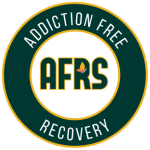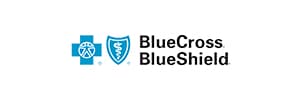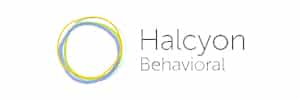Promethazine is a prescription antihistamine commonly used for various purposes, including treating allergies, nausea, and motion sickness, and occasionally also serves as a sleeping agent. Its mode of action is suppressing the action of histamine receptors in the body, which relieves conditions such as itching, rashes, and nausea.
Despite its therapeutic benefits, promethazine abuse has become increasingly alarming. People abuse this medicine due to its sedating effect and psychoactive ability. This blog post provides an in-depth study into the concerns of promethazine abuse, as well as the signs, symptoms, and treatments of addiction.
What Is Promethazine Abuse?
Promethazine abuse is defined as the use of the drug not by medical standards or for the intended purpose for which it was prescribed. Some use the drug in higher dosages than prescribed for its sedative and euphoric effects, among others. Other drugs commonly abused with this one include opioids or alcohol as a means of enhancing the sedative properties and leading to hazardous results.
The risks involved with this abuse of promethazine are extremely high, especially regarding dependency or addiction. Users might not fully realize the dangers involved in abuse until later on, with the abuse itself becoming dangerous over time. Therefore, it is necessary to know just how this drug is abused as well as its impact on the body and mind.
The abuse of the drug is very rampant among individuals who use it to sedate themselves to avoid any stress, anxiety, and mental afflictions. Some misuse promethazine as a means to medicate themselves, which has a cycle of dependence on addiction that increases the risk trends.
Signs Someone Is Abusing Promethazine
Early detection of the signs of promethazine abuse will help in providing intervention and treatment. It is not hard to understand that abuse of any drug may lead to either physical signs or behavioral signs. Should you suspect a person near you of using promethazine, these are important signs to be on the lookout for:
Physical Signs of Promethazine Abuse
Generally, the individual abusing promethazine would experience extreme drowsiness or sedation. Other physical symptoms include:
- Dizziness.
- Loss of coordination and motor skills.
- Over-slurring speech.
- Blurred vision.
- Nausea or vomiting.
- Breathing difficulty, especially when combined with other drugs like alcohol.
These symptoms may be mild or severe, and any of these signs should be taken seriously and acted upon immediately. More serious health issues can result from long-term abuse of promethazine, including respiratory problems or cognitive impairment.
Behavioral Signs of Promethazine Abuse
Abusing promethazine also causes gross changes in the personality of a person. The common behavioral signs are:
- Neglecting responsibilities, such as work, school, or family.
- Mood swings, irritability, or confusion.
- Becoming reclusive or isolated from friends and family.
- Using the drug more frequently or in larger amounts than intended.
- It can be combined with alcohol or other drugs and can involve risky behavior.
This calls for being caring and concerned as one responds to such situations, bearing in mind that there is early intervention, avoiding a worse outcome, and providing them with help and support.
Health Risks of Promethazine Abuse
- Addiction. As tolerance builds, users may find themselves needing more of the drug to experience the same effects, which can lead to dependency and addiction.
- Respiratory Depression. High doses of Promethazine, especially in combination with other depressants like alcohol or opioids, can significantly slow down breathing, which can be life-threatening.
- Brain Damage. Chronic abuse can lead to changes in brain function and cognitive impairment, particularly in memory, focus, and decision-making.
- Overdose. An overdose of Promethazine can result in life-threatening complications, including respiratory failure, seizures, and death.

Symptoms of Promethazine Abuse
The symptoms of promethazine abuse vary with the dose and the route in which it is being abused. Sometimes, the symptoms can be very mild, but with a high dose or in the presence of other substances, the symptoms can be lethal.
Short-Term Symptoms of Promethazine Abuse
Short-term effects of abusing promethazine include:
- Excessive drowsiness or sedation.
- Dizziness or confusion.
- Slurred speech.
- Inadequate sleep or poor sleep quality.
- Vomiting or nausea.
- Low blood pressure.
- Palpitations, tachycardia, or rapid heart rate.
These symptoms become dangerous, more so if abusing promethazine in addition to other substances. People do not even realize how severe these symptoms may be, offering risky situations or overdosing.
Long-Term Symptoms of Promethazine Abuse
Long-term use of promethazine may bring several health problems, such as
- Cognitive impairments, for example, memory loss or failure to concentrate.
- Chronic fatigue.
- Aerobic issues can include shallow breathing or a depressed respiratory rate.
- Depression or anxiety.
- Liver and kidney damage.
- High potential for overdose.
Prolonged use of Promethazine may have several lasting impacts on a person’s overall physical and mental health. Accordingly, a patient should seek the expertise of medical professionals if suffering symptoms associated with chronic abuse.
Treatment for Promethazine Abuse
There is always a chance that the individual might be treated for promethazine drug abuse. Professionals would be required to diagnose and treat the addiction as well as the mental health problem that compels an individual towards misusing the drug.
Detoxing From Promethazine
The treatment for promethazine abuse starts as detoxification. Detoxing from promethazine is very important in a medicinal system because withdrawal symptoms become not only uncomfortable but at times, dangerous. A process of medically assisted detox can remove these symptoms and then clinically stabilize the individual before bringing the patient into the next treatment stage.
Among the most common withdrawal symptoms are
- Anxiety or agitation.
- Difficulty sleeping or insomnia.
- Sweating or shivering.
- Vomiting or nausea.
- Irritability or mood swings.
A detox program under medical supervision controls those symptoms or guarantees the right safety all through the detoxification process.

Therapy and Counseling for Promethazine Abuse
Detoxification is not considered effective if no post-detox period of appropriate therapy and counseling ensures recovery from the addiction. Behavioral therapies include, among others, CBT and contingency management, which are known to work well at the root cause of addiction through skill building and healthy habits in daily function.
Additional sources of reinforcement include groups, including Narcotics Anonymous (NA), that offer long-term reinforcement and support. Such groups provide recovering individuals with a sense of community and afford them opportunities to share experiences and take one another’s advice.
Inpatient and Outpatient Treatment Programs
Treatment is conducted either in an in-patient or an out-patient setting. In-patient courses are highly recommended to clients who require a stifling environment of treatment or have a history of severe addiction. This ensures close monitoring of their treatment procedure that prevents them from slipping through the cracks and recovering from addiction day after day.
Outpatient treatment programs better suit those individuals who have stepped out from the detox and are fully ready to regain balance in life, they can experience flexible treatment schedules while attending therapies and counseling sessions at the same time as fulfilling work or school schedules.
Medication-Assisted Treatment (MAT)
Sometimes, treatment is referred to as Medication-Assisted Treatment, and it is where patients will receive medication in addition to therapy. In MAT, medication is combined with counseling and behavioral therapies to provide an overall approach to treatment. The effects of these drugs in MAT tend to make it easier to abstain from substance use through reduced craving and withdrawal.
Final Discussion on Promethazine Drug Abuse
Promethazine drug abuse is a serious issue that requires immediate attention and intervention. Recognizing the signs of promethazine abuse early can help individuals seek treatment before their addiction escalates. If you or someone you know is struggling with promethazine abuse, it is important to seek professional help as soon as possible.
Treatment options, such as detoxing from promethazine, therapy, and counseling, can help individuals overcome their addiction and regain control of their lives. With the right support, recovery is possible, and individuals can lead healthy, fulfilling lives free from addiction.
If you or someone you know needs help with promethazine abuse, don’t wait. Reach out to a healthcare professional or addiction specialist to get the help you need to begin your recovery journey today.
FAQ’s
- What is the main cause of Promethazine abuse?
Promethazine abuse typically stems from individuals seeking the drug’s sedative or calming effects. This is often done by taking higher doses than prescribed or mixing it with other substances, which can heighten the effects and create a sense of euphoria.
- How do I know if someone is abusing promethazine?
Signs of promethazine abuse can include extreme drowsiness, slurred speech, impaired coordination, and neglecting responsibilities. If someone is using the drug in a way that is not consistent with medical guidance, it’s essential to intervene and seek help.
- What are the long-term effects of abusing promethazine?
The long-term abuse of promethazine can lead to cognitive impairment, respiratory issues, liver and kidney damage, and an increased risk of overdose. It’s important to seek professional help if you suspect someone is misusing this drug.
- How is promethazine abuse treated?
Treatment for promethazine abuse typically involves medically supervised detox, followed by therapy and counseling. Behavioral therapies can help individuals address the root causes of their addiction and develop healthy coping mechanisms.
- Can promethazine abuse lead to addiction?
Yes, abusing promethazine can lead to dependency and addiction. The drug’s sedative effects can be highly addictive, and individuals may find themselves using it more frequently to achieve the same effects.


























